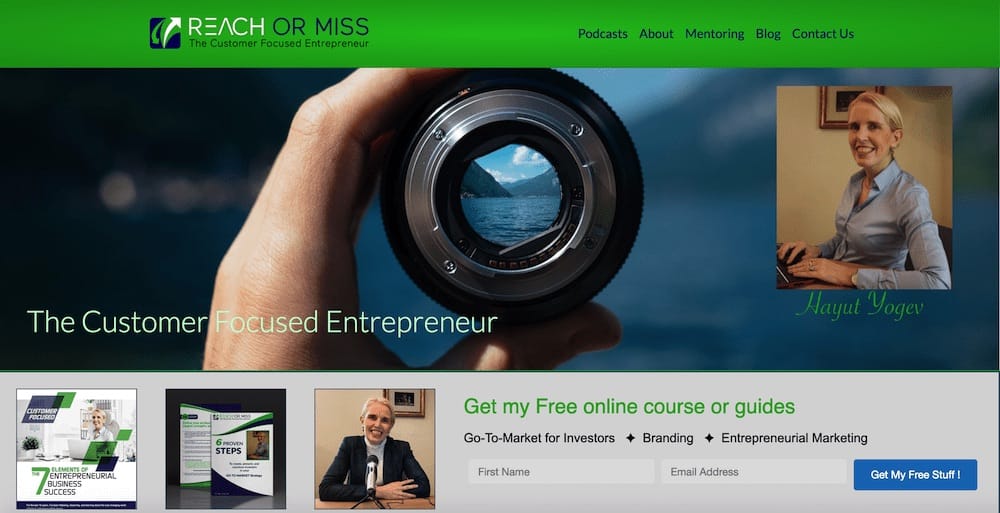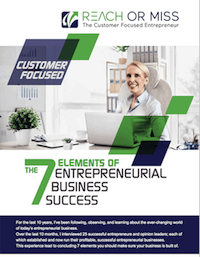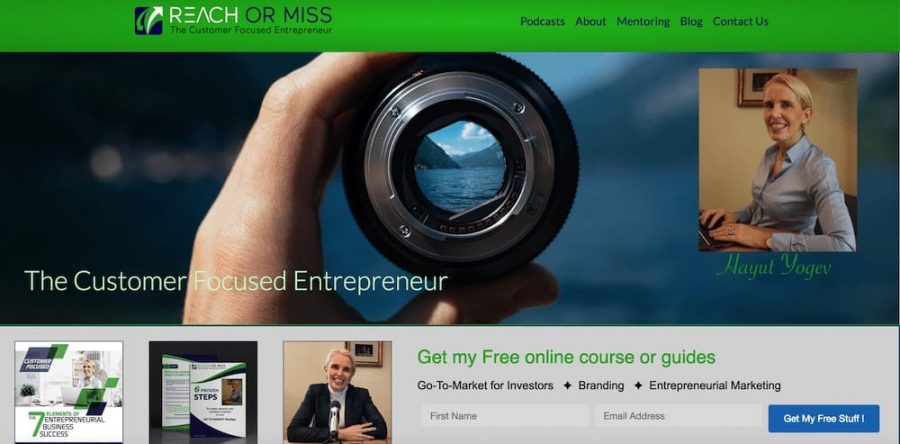100 episodes. And I never thought I would ever have my own company.
When you manage tens of millions of dollars in marketing budgets for the leading brands around the world, you are sure it’s the most influential position you can get.

A summary of 2 things I was wrong about, 1 thing I was right about, and 2 interesting questions:
I never considered having a podcast. I never considered writing a blog either.
It all started 11 years ago.
It was a month after I decided to leave my executive position as the VP of Marketing for Nokia in Israel. We managed to reach Nokia's highest targets in terms of market share, brand preference (+160%), and brand loyalty (+127%). But we mainly managed to gain back the market leadership crown, which had been stolen from us in 2003.
The three fantastic and exciting years at Nokia ended a period of 21 years when I used the magic of marketing and sales to reach success.
I experienced this magic of marketing in the past over and over again:
- Prior to Nokia, I had the opportunity to Increase Lipton's market share from 12% to 32% within 3 years.
- I was part of a group that made miracles building Energizer from a totally new brand to the market leader with 47% over 40% Duracell’s market share.
- I multiplied the sales volume, turnover, profitability, and brand awareness, transforming an excellent Bee Products production into a leading brand in the honey market in Israel.
- And before that, together with a group of excellent people, I established one of the strongest local brands, Tami 4’ water purification systems, launching the brand into the market while turning it into the market leader.
So, when I left Nokia looking for my next challenge, I felt building another leading brand wouldn’t provide the level of creativity, productivity, and excitement I was looking for.
It was then I got an offer to join a new VC that was about to launch. While studying the market, I realized I didn’t want to be a part of a VC, but I also discovered most startups and entrepreneurs don’t use the magic of marketing which leads companies into leading multinational brands, gaining paying customers, growing turnovers, profits, and sky rocketing value.
So, I decided to establish my own company. I have the opportunity to teach thousands of startups that using marketing and sales the right way was the main stumbling bock standing between them and success.
I’ve been doing it for eleven years now, however, the first nine years I worked, with a professional devoted team, with more than 120 companies; finding their biggest opportunity in the market while trying to help entrepreneurs make a breakthrough into the international markets.
Four years ago, we started to see big changes in the industry; many new entrepreneurs are looking for fast fundraising and a quick exit.
We started to shift, looking to get wider influence, away from the consultation part of our company.
It was then that I bumped into John Lee Dumas, creator of the most successful podcast for entrepreneurs EOFire.
It took a while, but then I realized a podcast would enable me to influence a much wider international audience of entrepreneurs.
Since starting my podcast two years and 99 episodes ago, I assumed a couple things as a base for my decisions.
So, as I promised, here are the 2 things I was wrong about, 1 thing I was right about, and 2 interesting questions:
- Everybody and his brother will start a podcast.
Well, they didn’t. Yet.
So, why did I think they would? And why hasn’t it happened? Yet.
I wanted our Reach Or Miss podcast to affect as many entrepreneurs as I could.
I used to listen to only a few podcasts, but through John Lee Dumas and Kate Erickson from Entrepreneurs On Fire, I learned about the strong effect of podcasts over entrepreneurs and the positive equation for supply and demand in the world of podcasting:
X - people have many hours when they can only listen – like while driving, and during workout sessions, for example.
Y - Many people love to be heard and to influence others
Z - The barriers to podcasting are minimal in terms of the tools required, and the availability of podcasting education options.
I believe that what is preventing podcasting from becoming a much wider trend is one of our greatest challenges today: the lack of fast, easy ways to search for what we want to listen to in the endless list of podcasts.
- Personal Brands are mainly for celebs, marketers, or the entertainment world
Personal branding is not a new trend. Famous artists, actors, scientists, authors, successful hair designers and the like, not to mention emperors, kings, presidents, and ministers have personal brands.
However, I never thought a self employed person, coach, consultant, blogger, or online marketer would try to build their own personal brand.
What changed my mind was Mark Schaefer, with his outstanding book Known.
The ability to quickly become an influence on so many, along with the financial rewards that come with it, make it an attractive opportunity.
“Nobody is born a thought leader. It’s something you need to earn in the mind of your audience, slowly over time.”
(Mark Schaefer, KNOWN)
What was I right about?
- Startups will continue to fail for failing to find and attract the right customers for their new product or service.
Over the last few years, another reason for entrepreneurship failures became a major factor. The way of managing entrepreneurship using a “trial and error” mindset became conceivable.
Suddenly, startups didn’t have to fit the criteria of a small business to succeed, gain profits, and return investment and loans.
Instead startups do everything they can to raise money that isn’t theirs, and it is okay to fail. There is much less obligation to succeed than any other small business.
And the two questions?
Two weeks ago, I read two discussions in a women entrepreneurs’ Facebook group I‘m part of. They were similar to the examples below:
1st Discussion:
Podcast Lady Q: What do you want to hear about in a new podcast for women entrepreneurs?
Woman A: I wish I could find actionable steps for creating and maintaining a successful growing business.
Woman B: I totally agree!!
Woman C: So great to find ladies entrepreneurs with the same mindset as yourself.
Woman D: same! Cut to the chase!! We don’t want to waste our time trying to figure out what to do.
(2 comments + replies)
2nd Discussion:
New Business Lady Q: How do I build my brand? I am lost! Where can I learn about it?
This question got 47 comments, many of which were recommendations; some to excellent free options, some self promotions, others asked for more detail about the main struggle.
Two thoughts crossed my mind:
- How come I never see such discussions between male entrepreneurs???
- When there is so much free and paid content out there and so many promotions, the only thing that has and will ever really work is Word Of Mouth, or trusted human recommendation.
The first question bothered me.
According to research done by CBInsight, entrepreneurs stated that the first reason for their start up failure (42%) is ‘no market need’. So, how come so few entrepreneurs use the huge advantage of correct marketing approach and tools?
I believe the answer is most entrepreneurs think that when it comes to entrepreneurship, the best way to gain a business success is trial and error. And trial and error means a very low success rate.
And this is probably the main reason entrepreneurial businesses success rate is less than 10%.
The answer to the second question is to focus and allocate a major portion of the marketing budget and plans to engaging with your audience. That is what creates positive perception towards your new product or service.
 |
You are welcome to check out this free guide about the 7 elements of entrepreneurial business success |




